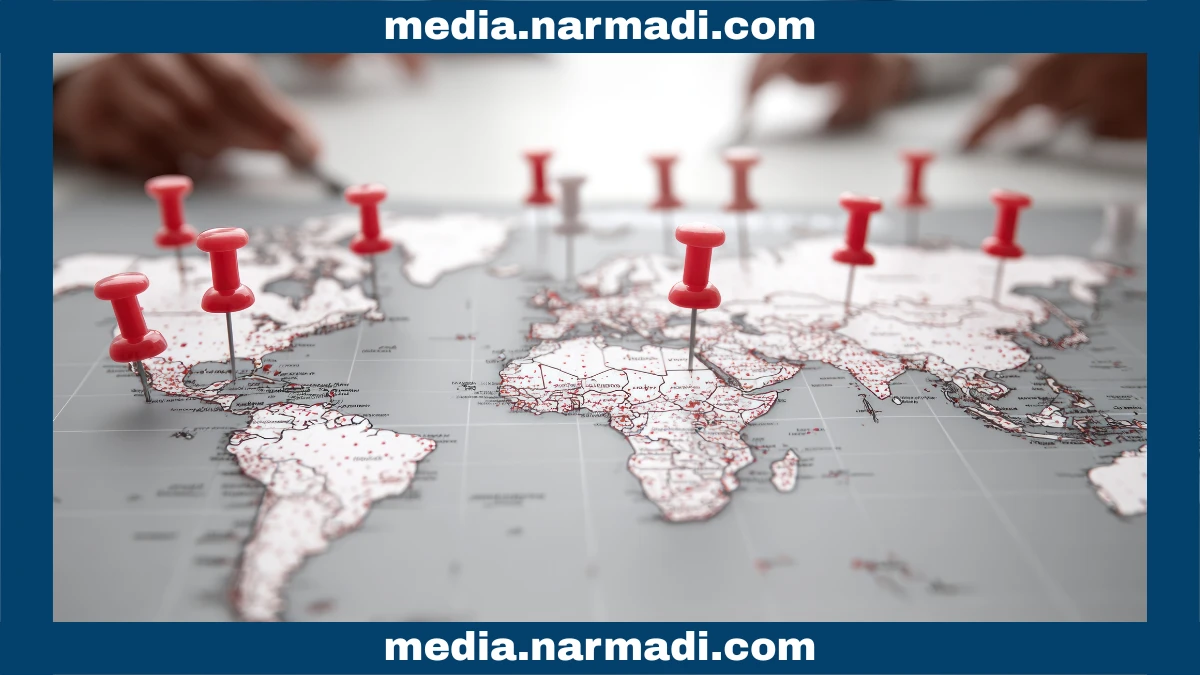Every device that uses radio frequencies, such as WiFi repeater, RFID, and the Internet of Things (IoT), plays a significant role in the development of digital infrastructure. Therefore, these devices have potential in the global market. However, the challenge is that they must pass radio type approval certification in each country.
A product may function worldwide, but without local radio type approval certification, it cannot be sold anywhere. In fact, more than 180 countries have different type approval schemes. Therefore, it is important to know how to obtain such a certification.
The purpose of the radio frequency product testing and certification process is to ensure compliance with national regulations in each country. This includes verification of local frequency spectrum rules, emission standards, and safety requirements. This is where radio type approval becomes the passport for your product.
What is Radio Type Approval?

Radio type approval is a mandatory certification that every manufacturer must obtain in order to market wireless devices that transmit radio signals in a country. This certification ensures that the products being marketed comply with the technical standards and regulations of a country.
Every device that uses radio frequencies must comply with the allocations and restrictions set by the government. Wireless type approval certification means that the device is safe to use and does not interfere with other communication services.
The following is the telecom type approval process that must generally be followed:
- Document Preparation: Collect all necessary technical documents.
- Radio Frequency (RF) Testing: Evaluate wireless signal transmission.
- Electromagnetic Compatibility (EMC) Testing: Ensure that the device does not interfere with other devices.
- Electrical Safety Testing: Ensure that the device is safe to use.
- Laser Safety Testing: Testing for laser-based devices.
- Specific Absorption Rate (SAR) Testing: Evaluating RF energy exposure to humans.
- Type Approval Process: Applying to the relevant authorities.
- Certificate Issuance: Official certificates are issued.
Navigating the Global Regulatory Maze

To achieve global market access, the biggest challenge lies in the fragmentation of standards. There is no international type approval that covers all regions. Regulations applicable in Europe will differ from those in Asia. Even reports from one country may not be recognized in another country on the same continent.
Each country has different requirements for international type approval applicants. Here are some examples applicable in ASIA:
Indonesia DJID Certification: Certificate holders must be registered local companies. They can be distributors, importers, or brand representatives.
SIRIM Malaysia Certification: Applicants must be locally registered companies. They can be importers, distributors, or manufacturer representative offices. However, they can use the name of an agent company as an IOR at an additional cost.
Thailand NBTC Certification: It is recommended to appoint the actual importer as the certificate holder. However, it is possible to use a local representative service or use the name of a Thai agent.
Singapore IMDA Certification: It is recommended to use an importer or distributor as the certificate holder.
NTC Certification Philippines: Manufacturers, importers, or distributors are allowed to apply.
Vietnam MoST Certification: The applicant for approval certification or certificate holder is a registered local company. This can be a subsidiary of the manufacturer, importer, distributor, or local representative of the manufacturer.
Cambodia TRC Certification: The certificate holder is the distributor, importer, or local representative of the brand. However, it is permissible to appoint a single representative company, such as an agent.
India TEC MTCTE and WPC ETA Certification: The applicant must be a local representative responsible for the product. They can be representatives of foreign manufacturers, subsidiaries, or authorized local entities.
To adapt to the complexities of these jurisdictions, companies must develop multi-country compliance strategies. That way, their testing results, documentation, and product designs can be adapted.
Common Challenges and Obstacles
Considering type approval as a formality is a common mistake made by post-production companies. In fact, planning for compliance from the design stage can save more time and money. Here are some common challenges and obstacles in radio type approval:
- Inconsistent technical documentation: Minor differences in labeling or reports can lead to retesting.
- Approval time: Product launches are often delayed due to testing cycles and administrative requirements.
- Local representation: Some countries require applicants to be local entities.
- Ever-evolving regulations: Each country has a range of frequencies and restrictions that change frequently to accommodate new technologies.
From Obligation to Strategy: The True Value of Type Approval
Manufacturers should not view type approval as mere bureaucracy. It should be seen as a competitive differentiator. Certified products will reach the market with greater user confidence.
It is highly beneficial for companies to consider regulatory requirements early in product development. This will help companies adapt to testing requirements in different countries, comply with various frequency ranges, and accelerate time to market.
Working Together for Global Compliance Success

To navigate the different regulations in each country, companies need to collaborate with experienced testing and certification partners. This is crucial as it helps companies overcome these complexities.
Dimulti, as a Product Compliance Specialist, is ready to be your partner in helping you penetrate the global market. Here are the services we offer:
- Pre-compliance testing for RF, EMC, Electrical Safety Testing, Laser Safety Testing, and SAR.
- Regulatory consultation to accurately interpret local requirements.
- Assistance in coordinating with international laboratories.
- Support for local representatives in countries that require domestic applicants.
Dimulti has extensive experience and a global network of partners, ensuring every product can enter the global market. This reduces rework, costs, and delays. With the right partners, radio type approval is no longer an obstacle but a bridge to the global market.
Connect with our Expert
Telp: +62 21 27843242, Email: info(at)narmadi(dot)com, WhatsApp
In the further, it will be our pleasure to help you to arrange the Radio Type Approval for global market access.